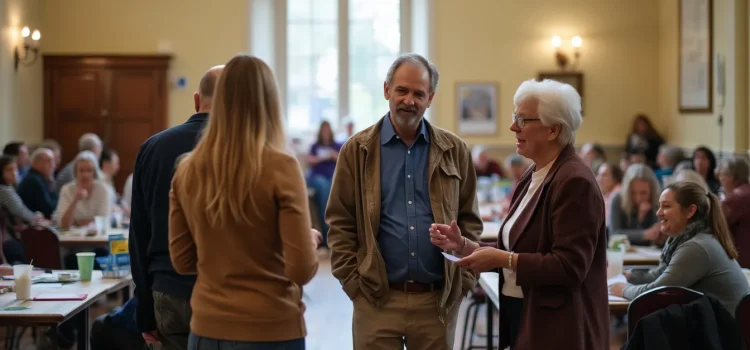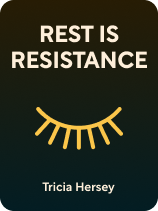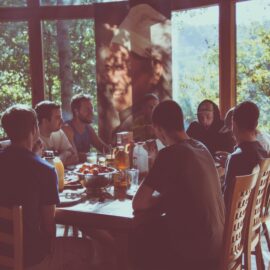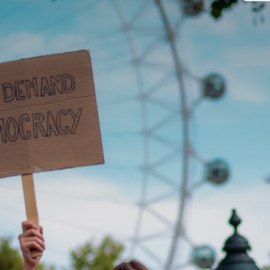

This article is an excerpt from the Shortform book guide to "Rest Is Resistance" by Tricia Hersey. Shortform has the world's best summaries and analyses of books you should be reading.
Like this article? Sign up for a free trial here.
How can communities support each other in resisting grind culture? What do “politics of refusal” look like in practice?
Tricia Hersey’s book Rest Is Resistance explores the concept of rest as a communal practice. She advocates for creating spaces and communities dedicated to well-being over constant productivity. Hersey introduces the idea of a “politics of refusal” where people collectively reject the demands of grind culture.
Read on to discover how communities can empower each other to prioritize rest and well-being in a world that often values productivity above all else.
The Politics of Refusal
In her book, Hersey discusses rest as a largely individual practice. However, she also emphasizes the role of community in resisting grind culture and fostering genuine, restorative rest. She advocates the creation of trained and educated communities, where people share a commitment to well-being over constant productivity. This involves consciously creating spaces for rest in important areas such as homes, workplaces, and community spaces such as churches.
Hersey’s vision of thriving, well-rested communities relies heavily on what she calls politics of refusal: a movement where large numbers of people actively and collectively reject the demands of grind culture. These community members would support each other every day like people already support one another during times of hardship, such as after the loss of a loved one.
(Shortform note: In Willpower Doesn’t Work, psychologist Benjamin Hardy explains the importance of tailoring your environment to its purpose (whether work or rest), and describes what a resting environment might look like. Hardy says an effective resting environment is a place where you’re protected from all the stresses of the outside world. Therefore, he recommends decorating your resting space with colors and art that soothe or uplift you, filling it with things that make you happy such as your favorite books and trinkets, and ensuring that phones and computers stay outside of it—this ensures that people can’t reach you to place more demands on your time and that you’re not tempted to do work-related tasks like checking your email.)
In a community of refusal, people encourage and empower each other to rest as needed. Since people need money to survive—and many people genuinely can’t afford to take time off from work under the current system—empowerment often means giving each other material support as well as emotional or spiritual support. For instance, this could mean sharing food with those who need it, sharing skills so people don’t need to pay professionals for things like home repairs, or helping one another with bills and living expenses.
(Shortform note: Communal resistance to harmful and predatory practices has proven highly effective in the past, leading both to improved living conditions and to stronger bonds between community members. For example, in Lost Connections, journalist Johann Hari describes how residents of a West Berlin neighborhood called Kotti came together to protest increasing rents and protect an elderly woman who was about to be evicted. Crucially, in doing so, the residents of Kotti realized that they were all struggling for the same reasons; the problem was systemic, not individual. Therefore, even after the protest ended, members of the Kotti community continued to support each other however they could, helping each other to survive their shared problems.)

———End of Preview———
Like what you just read? Read the rest of the world's best book summary and analysis of Tricia Hersey's "Rest Is Resistance" at Shortform.
Here's what you'll find in our full Rest Is Resistance summary:
- How modern grind culture hurts you physically and spiritually
- The 3 myths that grind culture instill in society
- How rest can be used as a radical form of resistance






